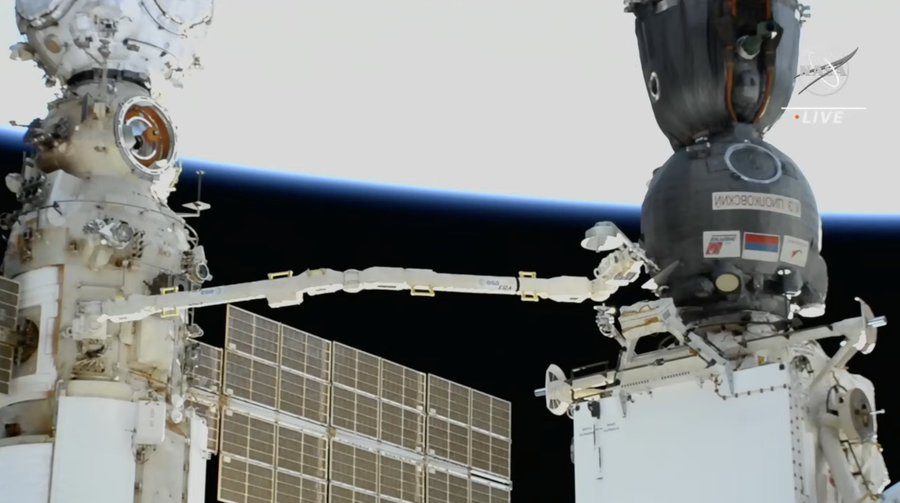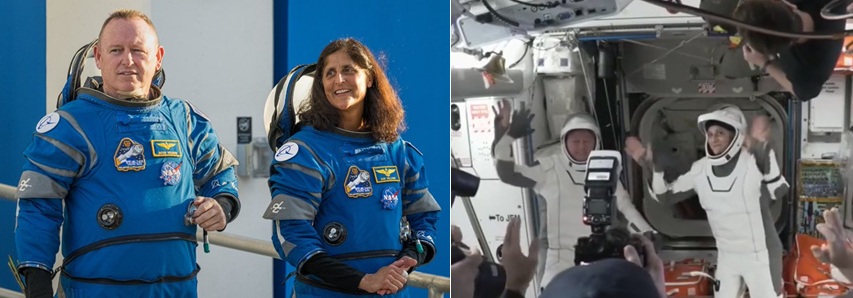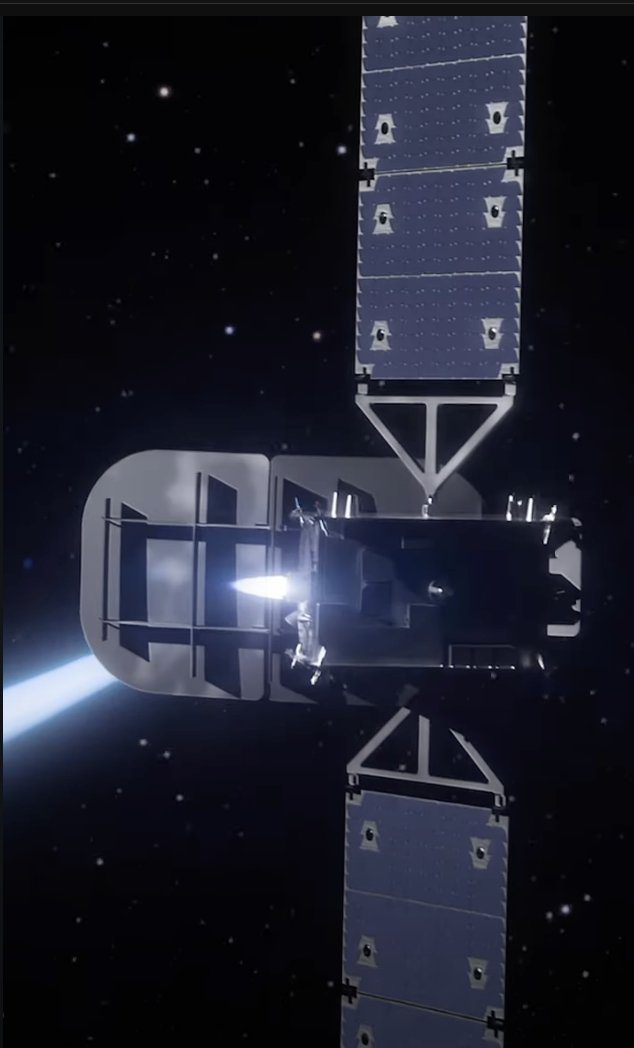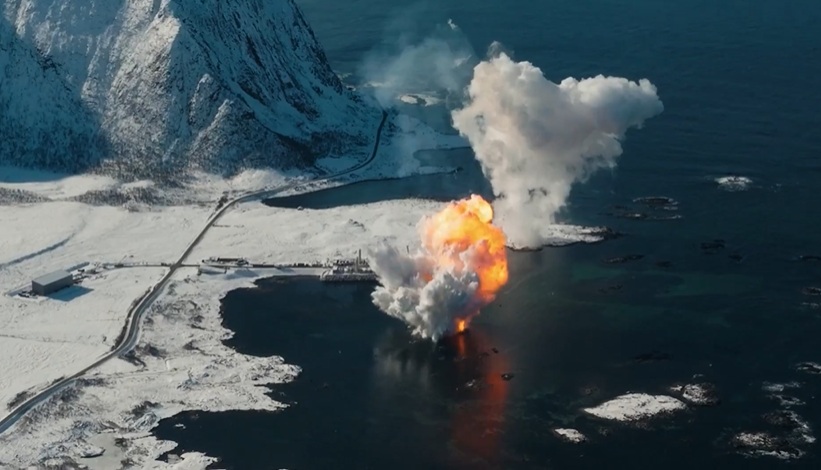Following a radiator leak on 15 December, Roscosmos, in agreement with NASA and other International Space Station (ISS) partners, has decided that the Soyuz MS-22 will not return to Earth with humans on it, unless there is an extreme emergency.
A radiator leak on Soyuz MS-22 damaged the human-carrying spacecraft’s thermal control system while it was docked with the ISS. The craft will stay attached to the ISS as a “lifeboat” until an empty new Soyuz spacecraft, Soyuz MS-23, can be launched in the spring and use automated docking to join itself to the ISS.
Update on 13 February 2023: During February it was revealed that the Progress MS-21 which was attached to the ISS had sprung a leak in its coolant system, similar to the radiator leak occurrence on Soyuz MS-22. This pair of failures makes the original cause of both most likely now to be a quality control issue rather than any claimed debris or meteor strike.
The damaged Soyuz MS-22 will then return to Earth in an unmanned mode. The cosmonaut crew, Sergey Prokopyev and Dmitry Petelin, and NASA astronaut Frank Rubio, whose mission has been extended, will then return aboard the Soyuz MS-23 spacecraft.
The original Soyuz MS-23 crew who were scheduled to fly to the ISS, Roscosmos cosmonauts Oleg Kononenko and Nikolay Chub, as well as NASA astronaut Loral O’Hara, will resume their flight six months later, probably on Soyuz MS-24.








